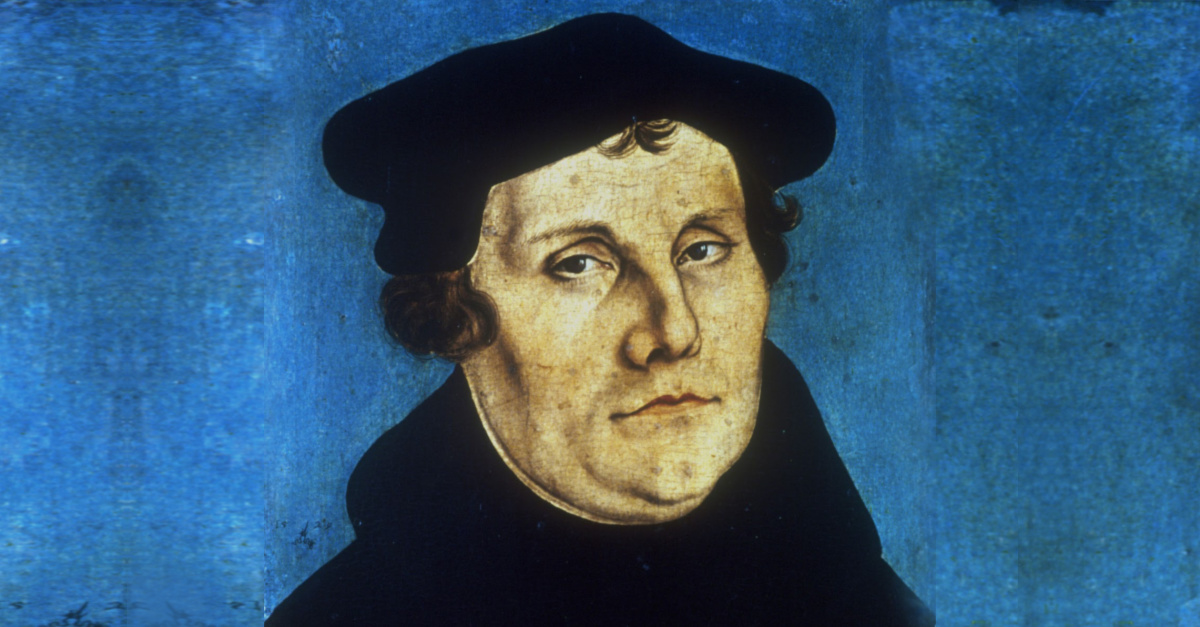In August of 1527, the horrific bubonic plague struck Wittenburg, Germany. Science debates whether the "Black Death" was caused by bubonic or pneumonic plague---one thing is certain: It killed more than 50 million people--60% of Europe's population.
When Christians turned to Martin Luther for spiritual guidance he was well aware of what a "plague" was, and what was coming.
His biblical counsel is relevant. He even suggested "social distancing."
Be informed.
Luther responds to his plague.
The Black Death and all the plagues of Europe (1347 -1670) were probably of bubonic plague, although not all scientists agree on the specific cause, they all agree that the Black Death was terrorizing.
The plague that hit Germany was horrific---In just one day, an infected person could show signs of delirium, fever, speech disorders, and loss of consciousness. Soon after they would break out in large boils that infected the bloodstream and rapidly led to their death.
In that context, local Christians began asking Martin Luther for advice. Should they stay or flee?
In response, he wrote a pamphlet titled, "Whether One May Flee From a Deadly Plague."
It combines common sense and faith in a way that is powerfully relevant to our coronavirus crises today.
Martin Luther and his pregnant wife Katharina chose to stay and minister to the sick and dying in Whittenberg.
Luther's decision was not for everybody, but his biblical thinking was.
When you read through Luther's pamphlet, you'll find that he counseled his readers to utilize medicine and intelligence, "to guard and to take good care of the body so that we can live in good health."
As a result, he said, "I shall fumigate, help purify the air, administer medicine, and take it."
He also practiced what we're calling "social distancing." He said,
"I shall avoid places and persons where my presence is not needed in order not to become contaminated and thus perchance infect and pollute others, and so cause their death as a result of my negligence."
He made this caveat:
"If my neighbor needs me, however, I shall not avoid place or person but will go freely."
The tone of Luther's counsel leaves no doubt that he was not counseling Christians to recklessly expose themselves to the plague. Quite the opposite.
In fact, only Luther, Katherina, another seminarian, and two chaplains stayed in Whittenberg---the rest fled to another area.
As it turned out, Martin and Katharina Luther were sparred from the plague. But they did not know this when they chose to stay behind and care for the ill in their community.
The takeaway.
Jim Denison wrote this about Luther and his wife:
"They could risk their lives to serve others because they were not afraid to die. Their hope was in proper procedures and medical treatments, but even more, it was in Christ. They trusted their Lord to protect them in life and bring them to heaven in death, whenever it came."
Our top medical people in the country are urging us to follow certain practices, such as social distancing, cough in our sleeve, etc., and that is absolutely necessary and required to slow and stop the spread of this coronavirus pandemic.
I strongly recommend you follow their counsel.
The takeaway from Mr. and Mrs. Luther is this: Choosing to hope in God as they did, sustains us as nothing else can. Their obedience in staying behind to minister is not the main point. The main point is that their hope in Jesus Christ transcended the crises.
It reminds us of the worst that can happen to us leads to the best that can happen to us.
Denison writes, "The moment we close our eyes on this diseased, fallen planet, we open them in God's perfect paradise. When we take our last breath here, we take our first breath there."
Remember Jesus said, "Everyone who lives and believes in Me shall never die" (John 11:26).
Two years after the plague and probably in response to it, Martin Luther wrote the hymn we know as "A Mighty Fortress Is Our God," a profound statement of trust in God, even in the most difficult times.
The lyrics say, in part:
A mighty fortress is our God, a bulwark never failing;
Our helper He, amid the flood of mortal ills prevailing.
Did we in our own strength confide,
our striving would be losing,
were not the right Man on our side,
the Man of God’s own choosing.
You ask who that may be?
Christ Jesus, it is he;
Lord Sabaoth his name,
from age to age the same;
and he must win the battle.
Let goods and kindred go, this mortal life also;
The body they may kill: God’s truth abideth still,
His kingdom is forever!
Be Hopeful. Be Blessed. Be Faithful. Be Prayerful.

